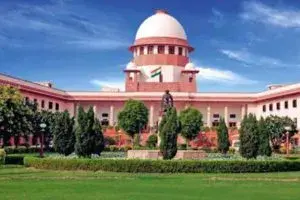By Lucy Rana and Shilpi Sharan
In a recent case, Ajit Mohan & Ors. v. Legislative Assembly National Capital Territory & ors.[1] the Three Judge Bench of the Hon’ble Supreme Court of India in the Postscript of the Judgment has made some intriguing and riveting observations while drawing a context between judicial delays, pendency of cases and restriction of time period for oral submissions by Counsels. The Hon’ble Bench in their 11- pointer Postscript have emphasized on how the proceedings will go on in the future i.e. post COVID period, which is likely to see a surge in the number of cases pending adjudication.
It would be relevant to mention here that the Bench in the case was hearing a petition wherein social media intermediary, Facebook had been alleged of fuelling violence between in February, 2020 with communal riots in different parts of North-East Delhi. The hearing in the case went on for 26 long hours.
While deliberating on the Postscript, the Apex Court clarified that the same was only to start a discussion among the legal fraternity and to notice the importance of succinctly framed written synopsis in advance, and the same being adhered to and to make judgments more crisp, clear and precise so that the common man can understand what is the law being laid down.
Essential Observations made by Supreme Court in Postscript
- That counsels must have a definite and clear idea about the submissions from the very inception of arguments. These submissions must be made in a manner of brief synopsis and strictly adhered to.
- That for speedy and proper administration of justice, restriction of time period for oral submissions must be brought forth, especially in the light of a pandemic.
- That it is the litigants who are burdened by the perplexing and prolonged judicial process which can be observed by the massive number of pending disputes across the country. The Supreme Court of India as of May 01, 2021, had 67,898 pending matters[2].
- That judgments are becoming more complex and verbose only on account of a large number of precedents cited and the necessity to deal with them and not merely refer to them as is done in other countries.
- That the time spent on routine matters leaves little time to settle legal principles pending before larger Benches that may have an impact down the line on the judicial system.
- That the International practices and procedures can be followed for increasing efficiency of court proceedings. Article 6 of the European Convention on Human Rights provides for the right to a fair trial wherein it is specified that all persons are entitled to a fair and public hearing within ‘reasonable time’.[3] Completion of proceedings within a reasonable time is a crucial aspect for ensuring a productive and systematic judicial system.
The Court noted that recent judgments were long and complicated not because of the complex nature of the issues but due to a large number of precedents cites and the necessity to deal with them. With regard to the use of precedents and referring to multiple judgments to express a particular point of view, the judges referred to the case of R. v. Erskine; R. v. Williams[4] wherein a reliable principle for referring to precedents can be noticed “if it is not necessary to refer to a previous decision of the court, it is necessary not to refer to it. Similarly, if it is not necessary to include a previous decision in the bundle of authorities, it is necessary to exclude it. That approach will be rigidly enforced.” The rule laid down the judgment is can be found in the criminal practice directions in the U.K
The legal system of the United States of America has emphasized on short and concise arguments. Rule 28 of the Supreme Court Rules states that ‘Unless the Court directs otherwise, each side is allowed a one-half hour for argument’. Moreover, any request for additional time to argue has to be presented prior to the date of the oral argument wherein the Counsel must specify why it would not be possible to present the case within the allotted half-hour time limit. Additional time is rarely accorded.
Conclusion:
Although most countries have not specified a time limit for oral arguments, the importance of such restrictions in a country such as India with a substantial number of pending cases cannot be disregarded. An analysis of the suggestions laid down by the Court is important so as to ensure that complexities of judgments do not exceed the grasp of a ‘common man’. However, the same may draw dichotomous opinions from the legal fraternity and the public at large.
[1] WRIT PETITION (C) NO.1088 OF 2020
[2] Statistics, Monthly Pending Cases, Types of matters pending in Supreme Court of India as on 01.05.2021, Supreme Court India, accessible at: https://main.sci.gov.in/statistics.
[3] Article 6, European Convention on Human Rights, 1953.
[4] [2009] EWCA Crim 1425, [2010] 1 WLR 183


